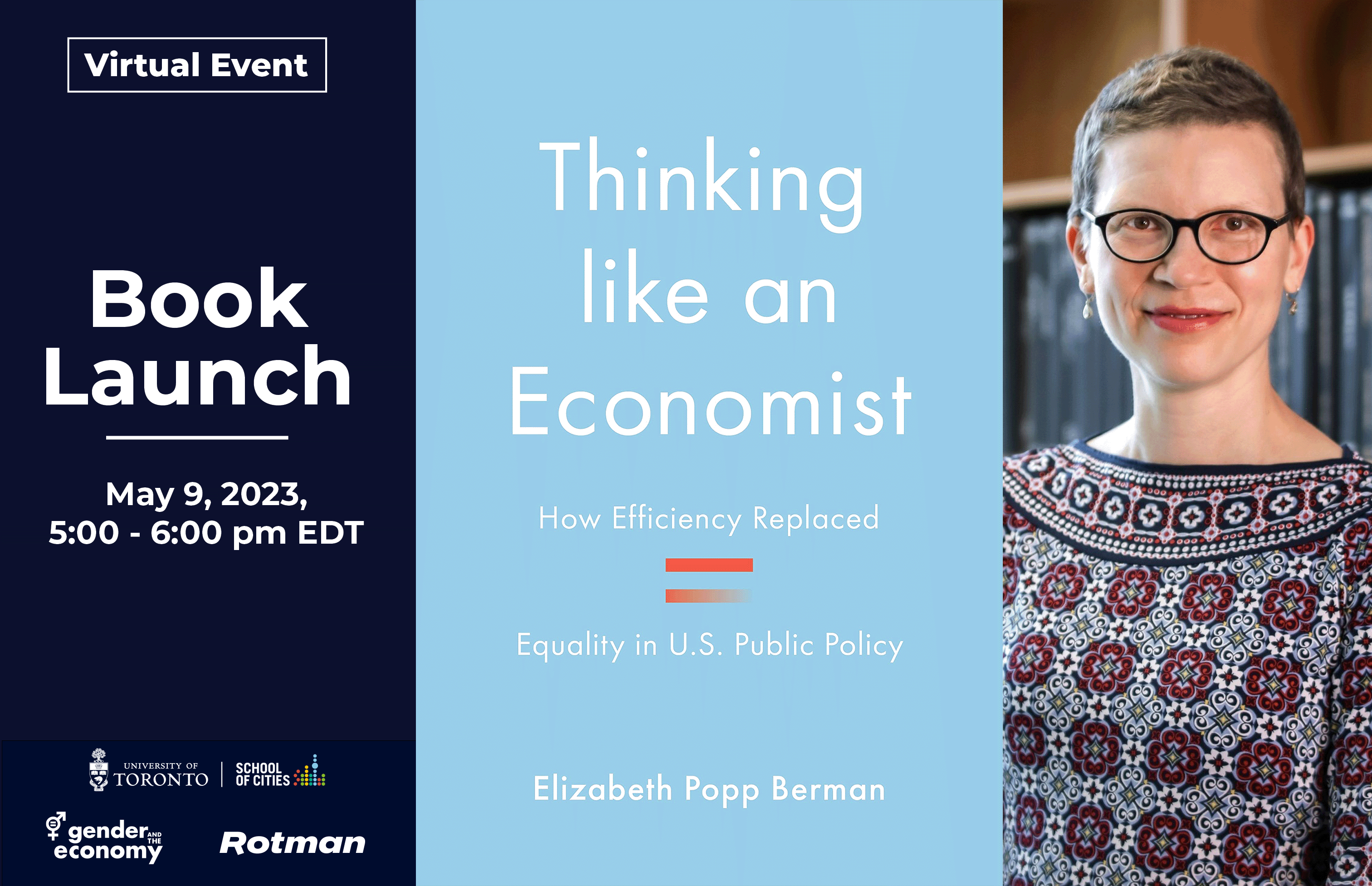Topic: Thinking like an Economist: How Efficiency Replaced Equality in U.S. Public Policy (Princeton University Press. 2022)
In collaboration with University of Toronto’s School of Cities, GATE hosted a conversation centered around economic efficiency and policy reform with the author of Thinking like an Economist: How Efficiency Replaced Equality in U.S. Public Policy (Princeton University Press), Elizabeth Popp Berman. Elizabeth is the Director and Richard H. Price Professor of Organizational Studies and Sociology (by courtesy) at the University of Michigan. The conversation was moderated by Karen Chapple, Director of the School of Cities and Professor in the Department of Geography and Planning at the University of Toronto.
Thinking like an Economist: How Efficiency Replaced Equality in U.S. Public Policy tells the story of how an “economic style of reasoning” became dominant in Washington between the 1960s and the 1980s and how it continues to dramatically narrow debates over public policy today. Together, Karen and Elizabeth explored the consequences of prioritizing efficiency over equity and how this contributes to the inequalities that exist today.
“I do absolutely think that there are ways that equity concerns, whether that’s gender or race, can be incorporated into policy making that is still firmly within the economic mainstream of thinking of how to make good policy.” – Elizabeth Popp Berman
Elizabeth also spoke about the role of equity in policy making, using the concept of ‘baby bonds’ as an example of a policy initiative that balances equity with social welfare. This policy proposes investing a bond at birth which the individual can access for educational or other purposes when they are 18. This policy would disproportionately benefit households with less wealth, and, if implemented correctly, ‘baby bonds’ can serve as a tool to bridge the racial wealth gap in the United States.
Watch Elizabeth discuss the role of gender in the field of economics




